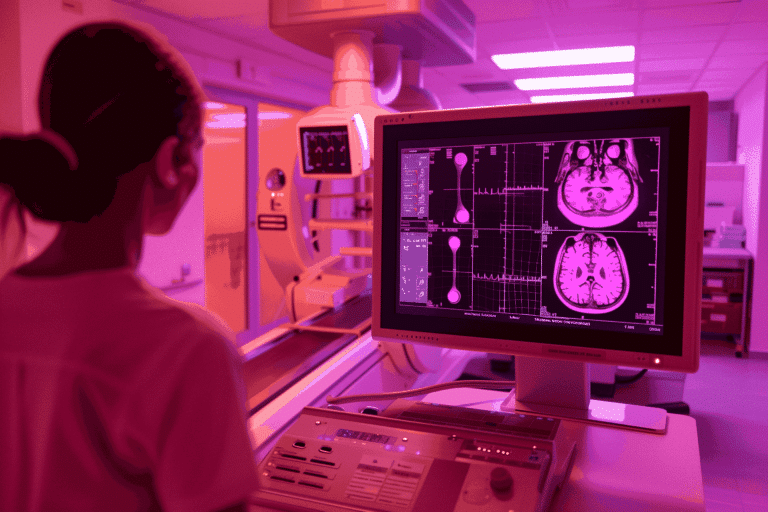At the forefront of the rapidly evolving field of medical imaging, Arterys and Aidoc are revolutionizing the way radiologists diagnose and treat patients. As artificial intelligence (AI) becomes an integral part of healthcare, these two companies offer tools that significantly improve the efficiency, accuracy and speed of radiology. Their innovative solutions, used in hospitals and clinics around the world, are transforming patient care by helping radiologists interpret complex image data.
Arterys, based in San Francisco, offers a cloud-based AI platform that uses deep learning to analyze medical images. This platform supports multiple modalities, including MRI, CT and ultrasound, and can be seamlessly integrated into existing radiology workflows. One notable application is cardiac imaging, where Arterys' Cardio AI tool automatically quantifies cardiac function and detects abnormalities in cardiac structures. This tool has proven to be very helpful in the diagnosis of diseases such as cardiomyopathy and coronary artery disease.
At Stanford Health Care, for example, radiologists have used Arterys' Cardio AI to optimize their cardiac imaging workflow. The AI tool reduces the time needed to analyze images and increases diagnostic accuracy. According to Dr. Daniel Ennis, a radiologist at Stanford, the tool's ability to take precise measurements and highlight potential problems has significantly improved outcomes for patients. "With Arterys, we can now diagnose and treat heart disease faster and more accurately, which is critical to patient care," he explained.
Aidoc, based in Tel Aviv, offers another groundbreaking AI solution for radiology. Aidoc's software focuses on grading and prioritizing radiology scans, enabling faster response times for critical cases. Aidoc's AI algorithms can detect various pathologies such as intracranial hemorrhage, pulmonary embolism and spinal fractures and flag urgent cases for immediate review by radiologists.
At the College of Rochester Medical Center (URMC), Aidoc's AI tool has been integrated into the radiology department's workflow to handle the high volume of emergency scans. Dr. David Waldman, Chief of Imaging Sciences at URMC, noted that Aidoc's tool is a game changer, especially in emergency situations. "Aidoc's ability to quickly identify critical findings and alert our radiologists has improved our response times and ensured that patients receive timely and appropriate care," Dr. Waldman explained.
In addition, both Arterys and Aidoc emphasize the importance of regulatory compliance and data security. Arterys' HIPAA-compliant platform has received FDA clearance for multiple AI models. Similarly, Aidoc's solutions are FDA-cleared and CE-marked, ensuring they meet rigorous standards for safety and efficacy. These certifications are critical to gaining the trust of healthcare providers and enabling the widespread adoption of AI technologies in clinical practice.
The impact of Arterys and Aidoc goes beyond individual hospitals and clinics. Their tools are part of a broader trend towards the digital transformation of healthcare, including the integration of AI, big data and cloud computing to improve patient outcomes. By automating routine tasks and providing decision support, these AI tools allow radiologists to focus on more complex cases and patient interactions, ultimately improving the quality of care.






